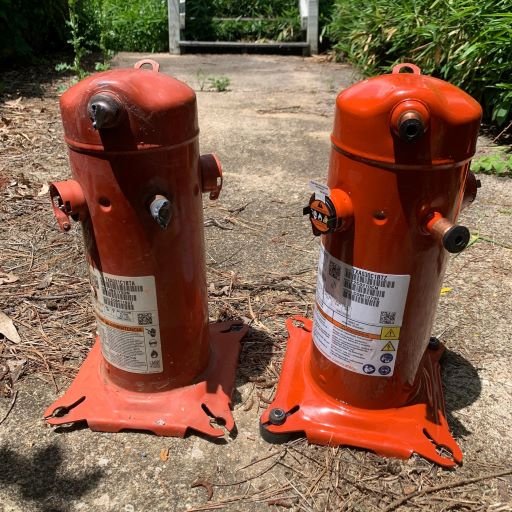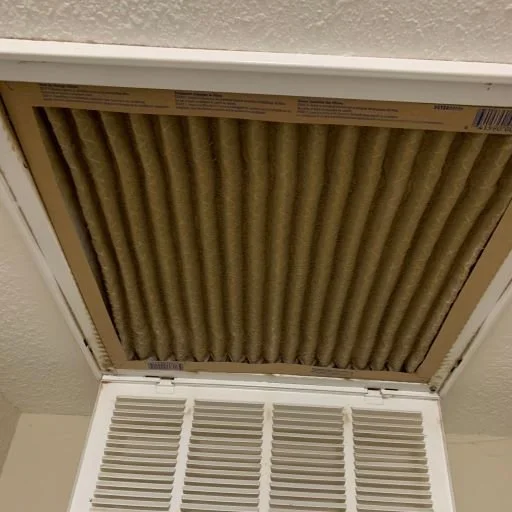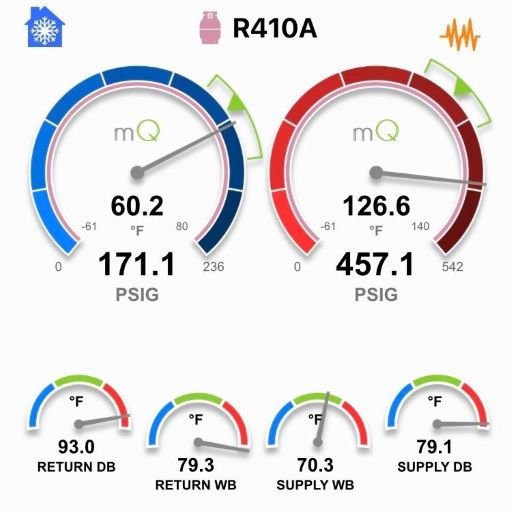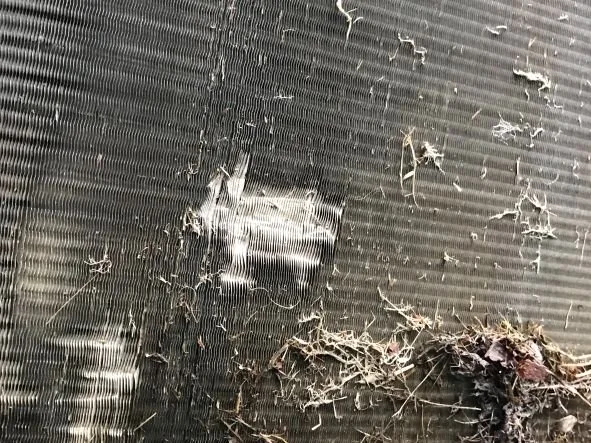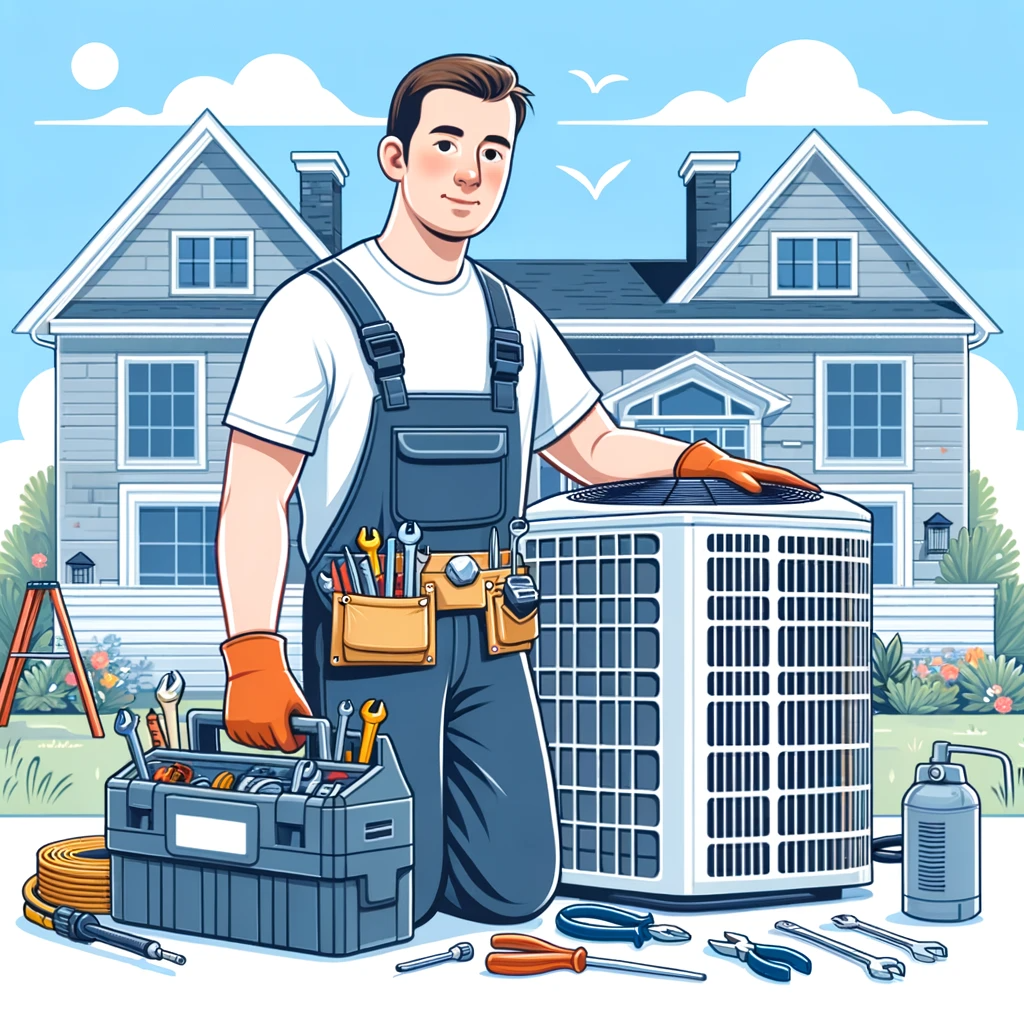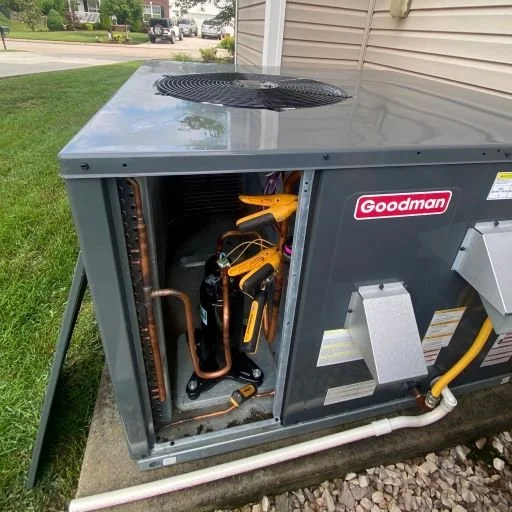Why Does My AC Compressor Shut Off After 2-3 Minutes?
When your AC compressor stops running after 2-3 minutes, you’re likely dealing with what’s known as short cycling. This abrupt shutdown can be prompted by a variety of factors, from airflow restrictions to refrigerant leaks or electrical hiccups. This article gets straight to the heart of the matter, explaining “why does my AC compressor shut off after 2-3 minutes” and how to diagnose and fix the underlying issues, helping you get your AC back to optimal performance with minimal fuss.
Key Takeaways
AC compressor short cycling is often caused by an oversized unit, clogged air filters, refrigerant leaks, or faulty electrical connections, leading to inefficiency, increased wear and tear, and reduced lifespan.
Regular maintenance such as cleaning condenser coils, replacing air filters, and troubleshooting thermostat issues can prevent compressor short cycling and extend AC system lifespan.
Complex issues like serious electrical faults and refrigerant leaks should be addressed by a professional HVAC technician to ensure proper handling, compliance with codes, and prevention of further damage.
Quick Links:
Understanding AC Compressor Short Cycling
When your air conditioning system repeatedly turns on and off, it’s referred to as AC compressor short cycling. This phenomenon is common in oversized AC systems that cool too swiftly without effectively dehumidifying. Short cycling not only induces inefficiency in energy consumption but also escalates the wear and tear of your AC system, thereby diminishing its lifespan.
An oversized unit, while seemingly beneficial due to its rapid cooling capacity, often instigates short cycling. This process can elevate energy consumption and accelerate the deterioration of your air conditioning unit.
Reasons for Short Cycling
Short cycling typically transpires when the AC compressor powers down before finishing a cooling cycle, thereby considerably diminishing the system’s efficiency and lifespan. This can happen due to several reasons, the most common being clogged air filters, refrigerant leaks, and faulty electrical connections.
When the air filter becomes clogged, it can restrict airflow, which can cause the compressor to overheat and shut off prematurely. This can lead to short cycling of the system. Similarly, refrigerant leaks can result in low refrigerant levels, causing the AC system to work harder, which leads to overheating and short cycling. Faulty electrical connections can also cause interruptions in the compressor’s power supply, leading to short cycling.
Other factors, such as frozen or dirty coils and mismatched AC system sizing, can also contribute to short cycling.
Effects on AC System Performance
The AC system can be forced to work beyond its normal capacity due to short cycling, leading to a rise in energy consumption and subsequently, higher energy bills. This is because air conditioners consume more power when starting up compared to running consistently. Therefore, if your air conditioner is continuously starting and stopping, it’s likely using more energy than it should.
Short cycling can cause several issues:
Discomfort in your home, especially during hot summer months
Faster wear and tear on air conditioning components
Potential damage to the unit
Decreased operational lifespan
To prevent short cycling, it’s important to address any underlying issues with your air conditioning system.
In some instances, poor airflow coupled with dirty evaporator coils may result in freezing, ultimately forcing the system to shut off until it has properly defrosted.
Identifying Common Causes of AC Compressor Shut Off
Recognizing the usual causes of AC compressor shut off is integral to preserving system efficiency and performance. Blocked airflow, refrigerant issues, and faulty electrical components are common causes that can lead to your AC compressor shutting off after a short period.
Blocked airflow can be caused by clogged air filters or closed air vents, leading to the compressor overheating and shutting off. Low refrigerant levels caused by leaks can also lead to overheating and shut off. Similarly, faulty electrical components like wiring, capacitors, and contactors can overheat the compressor, leading to shut off.
Timely troubleshooting of these common issues can help prevent further damage and ensure the AC system operates efficiently.
Blocked Airflow
AC compressor shut off frequently results from blocked airflow. A clogged air filter can limit airflow, leading to an overheated compressor and blower, which can precipitate short cycling and eventual system breakdowns. Even closed air vents can lead to a loss of HVAC system efficiency, requiring it to work harder and potentially shortening its lifespan due to increased system pressure.
Ensuring good airflow is crucial. This can be achieved by frequently inspecting and remedying closed or obstructed vents and replacing dirty filters. Impaired airflow can negatively influence thermostat functionality, leading to inaccurate temperature readings and improper AC system operation.
Refrigerant Issues
AC compressor shut off may also arise from refrigerant issues. Low refrigerant levels can stress the AC system components, leading to overheating and causing the compressor to shut off to prevent damage. Overcharged refrigerant can similarly lead to compressor shut off as it affects the normal functioning and balance within the AC system.
Refrigerant leaks can trigger the low-pressure switch at the compressor, causing the unit to shut down and result in inefficient cooling and short cycling. Short cycling due to low or improper refrigerant levels results in various equipment problems, malfunctions, and can significantly reduce the efficiency and lifespan of the AC system.
Faulty Electrical Components
AC compressor shut off can also be triggered by defective electrical components. Issues such as malfunctioning wiring, control boards, and capacitors can result in the air conditioner attempting to start, then failing, which results in short cycling of the AC compressor. Burnt wiring or a failed short circuit may cause the compressor to stop immediately, heat up, burn internally, or even melt wires and short to the housing.
Capacitor malfunctions, particularly with the start or run capacitors, can lead to stuttering on startup or motor operation failures in the AC system. Poorly maintained electrical connections can lead to intermittent contact, resulting in drops in compressor torque, shuddering, overheating, and eventual destruction of the compressor.
DIY Solutions for AC Compressor Shut Off
Despite some AC problems necessitating professional help, you can troubleshoot several common issues leading to AC compressor shut off on your own. These include replacing air filters, inspecting and cleaning condenser coils, and troubleshooting thermostat issues.
Some common maintenance tasks to prevent compressor short cycling include:
Replacing a dirty air filter to improve airflow and prevent overheating
Cleaning condenser coils to improve heat transfer and prevent compressor shut off due to overheating
Troubleshooting thermostat issues, such as ensuring it is not placed near heat sources or direct sunlight, which can cause inaccurate temperature readings.
By performing these maintenance tasks, you can help prevent compressor short cycling and ensure the efficient operation of your system.
Replacing Air Filters
The simple yet crucial task of replacing air filters forms an integral part of AC maintenance. Over time, a dirty air filter can restrict airflow, causing the compressor to overheat and shut off. This can lead to system breakdowns. Regularly replacing air filters can resolve immediate airflow blockage issues and lead to lower repair frequency, making maintenance generally more cost-effective than repairs.
To replace an air filter, follow these steps:
Ensure the power is off to the AC unit.
Locate the filter.
Remove the filter.
Inspect the condition of the filter.
If needed, purchase the correct replacement filter.
Install the replacement filter.
Monitor the filter and replace it as required.
Air filters should be changed every 90 days or more frequently in homes with pets or family members with allergies.
Inspecting and Cleaning Condenser Coils
Maintaining clean condenser coils is vital for preserving AC system efficiency and averting compressor shut off. Dirty or blocked condenser coils can impede heat transfer, leading to the compressor shutting off prematurely due to overheating.
Before cleaning the condenser coils, follow these steps:
Turn off the power to the AC unit.
Remove any covers on the top and side of the condenser unit.
Vacuum away any debris and dust.
Straighten any bent fins with a fin comb.
Apply a foaming cleaner.
Let it sit, then rinse the coils with water, allowing the condenser unit to air dry completely before reassembling the covers and restoring power to the unit.
Troubleshooting Thermostat Issues
Thermostat issues could be a potential reason if you’re facing AC compressor shut off. The thermostat’s control board sends signals to the HVAC system, and if it’s faulty, it can cause the thermostat to stop working, potentially leading to compressor shut off.
To troubleshoot thermostat issues, follow these steps:
Ensure the thermostat is not placed in locations with direct sunlight or near heat sources, which can cause inaccurate temperature readings.
Check for loose wiring that can cause intermittent thermostat operation.
Perform a thermostat reset if settings have been disrupted or after a power outage.
Replace thermostat batteries.
Check the circuit breaker for tripped switches to ensure consistent power supply.
By following these steps, you can effectively troubleshoot thermostat issues.
If you have a malfunctioning thermostat that frequently malfunctions or gives incorrect readings, consider replacing it.
When to Call a Professional HVAC Technician
While DIY solutions can solve some AC problems, more intricate issues necessitate the skills of a professional HVAC technician. Complex electrical problems, refrigerant leaks, and AC system evaluations are situations that may necessitate professional intervention.
Professional HVAC technicians offer the following benefits:
They can quickly diagnose and resolve issues, saving time on repairs.
They offer valuable insights based on their expert training and experience.
They ensure compliance with local regulations and codes, which is crucial during major repairs or installations.
They guarantee quality workmanship.
If you experience an unanticipated increase in energy bills or hear strange noises from your AC system, such as scraping or grinding, it’s time to seek professional diagnosis for potential hidden issues or serious internal damage.
Complex Electrical Problems
Professionals are best equipped to handle complex electrical issues involving breakers, wiring, or capacitors to avoid injuries from hazardous gases or electrical connections. Even with the best intentions, attempting to resolve these problems yourself can lead to further damage, making the issue more expensive to repair in the long run.
For instance, circuit breaker issues, such as being undersized or loose, indicate complex electrical problems that necessitate the expertise of a professional technician for replacement or repair. Similarly, wiring issues, including corrosion, disconnected wires, or fraying, can disrupt the flow of electricity in an AC unit and must be addressed by a professional to avoid further damage.
Refrigerant Leak Repairs
Due to their specialized nature and potential hazards, refrigerant leaks should also be managed by a professional HVAC technician. Improper handling of refrigerant can be harmful to both the environment and your health.
Professional HVAC technicians are equipped with the specialized training and equipment needed to safely manage and repair refrigerant leaks. They can perform a series of tests to accurately locate a refrigerant leak and ensure the AC system is correctly sealed after repairs.
AC System Evaluation
Routine professional evaluations of your AC system can identify potential problems early on, preventing expensive repairs down the line. An HVAC professional can ascertain the operational efficiency of an AC system through an evaluation, providing important insights into its condition.
Sometimes, simple repairs on an AC system, as suggested by a professional evaluation, may lead to substantial utility bill savings. Annual evaluations can also extend the lifespan of an AC unit by enabling timely maintenance and necessary part replacements before minor issues develop into larger system failures.
Preventative Maintenance Tips for AC Systems
To ensure smooth operation of your AC system and prevent compressor-related problems, preventative maintenance is key. Here are some steps you can take:
Regularly change the filters in your AC system.
Schedule an annual inspection with a professional HVAC technician.
Make sure your AC system is properly sized for your home.
By following these steps, you can maintain your AC system’s efficiency and extend its lifespan.
Annual maintenance from a professional technician can extend the HVAC system’s lifespan and provide peace of mind through reliable operation. Routine maintenance tasks such as cleaning condenser coils and lubricating bearings are essential components of annual professional servicing that keep the AC system efficient.
Regular Filter Changes
Regular replacement of air filters is essential to maintain optimal airflow and prevent compressor shut off caused by limited air circulation. Air filters should be changed with the turn of the seasons, or approximately every four months, and more frequently in homes with pets or family members with allergies to ensure the compressor does not short cycle.
When selecting a new air filter, it’s important to consider the MERV rating; a higher MERV rating provides finer filtration but can restrict airflow if too high, which could impact the AC systems, including causing the compressor to shut off.
Annual Inspections
An annual professional HVAC inspection is indispensable for early detection of potential issues, preventing them from causing substantial damage and incurring significant expenses. Annual inspections can extend the lifespan of an AC unit by enabling timely maintenance and necessary part replacements before minor issues develop into larger system failures.
By addressing issues early through inspections, homeowners can avoid expensive emergency repairs, thus saving money in the long run. The efficiency and performance of the AC system are significantly facilitated by annual maintenance, assuring reliable operation especially during periods of high demand.
Proper System Sizing
Choosing an AC system of appropriate size is vital for its efficient operation, as it helps reduce energy consumption and prolong the system’s lifespan. Improperly sized AC units may frequently cycle on and off, causing short cycling which negatively impacts the efficiency and could lead to humidity problems within the home.
A correctly sized AC system promotes a comfortable home environment by efficiently maintaining the balance between temperature and humidity levels. Consistent operation and avoidance of frequent cycling due to proper sizing results in fewer repairs and prolongs the overall lifespan of the AC unit.
Summary
Understanding why your AC compressor shuts off after 2-3 minutes is the first step towards resolving the issue and improving your system’s efficiency. From replacing air filters and cleaning condenser coils to troubleshooting thermostat issues, there are several preventative measures you can take to keep your AC running smoothly. However, for more complex issues like refrigerant leaks or electrical problems, it’s best to call a professional HVAC technician. Regular maintenance and annual inspections can help detect potential issues early, extend your system’s lifespan, and save you money in the long run.
Frequently Asked Questions
Why does my AC compressor stop after a few minutes?
Your AC compressor may stop after a few minutes due to a clogged air filter or duct obstructions, which can cause the compressor to overheat and shut off the system prematurely. Ensure proper airflow by checking for dirty filters and obstructed ducts.
What is short cycling and how does it affect my AC system?
Short cycling in your AC system can lead to inefficient energy use, increased wear and tear, and a reduced system lifespan.
Can I resolve AC compressor shut off issues myself?
It's best to leave complex issues like refrigerant leaks or electrical problems to the professionals, while simple maintenance tasks can be handled by yourself.
How often should I replace my air filter?
You should replace your air filter every 90 days, or more often if you have pets or family members with allergies. Regular replacement helps maintain good air quality in your home.



